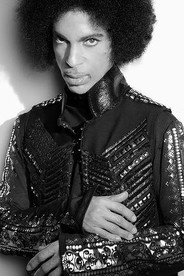 There are certain things that I will just forever associate with the eighties. Flouro. Paisley Park. Those keyboards that looked like guitars. Plastic bangles. The Bangles. With Manic Monday pretty much all of those things collided, coming together and becoming something magical. But the real magic behind it was of course the musical genius that is Prince. Last night Prince staged the first of his hastily arranged Piano and a microphone shows in Australia in Melbourne. After having cancelled a series of European dates in the wake of the Paris attacks, the Purple one found space in his schedule for the ocean continent and his contingent of fans down there. I once saw Prince in concert but it was in the nineties, around the time of Diamonds and Pearls. His music was still such a prolific part of popular music culture back then that it was almost a safe bet that you'd loved (or loathed) something he'd recorded. Diamonds and Pearls was one of those albums of his that was everywhere but one which didn't feel like one particular thing working as a whole. It worked in parts of course, but it also had parts that worked against itself. Prince's stamp over music back then was so prolific that his boutique label, Paisley Park was almost as well known as he was. Paisley Park has essentially been a vehicle for his own music, but over the years a lot of other artists have been associated, particularly the female acts that Prince mentored or developed. You know, Sheila E, Jill Jones and Apollonia and all the alumni of the Revolution, New Power Generation blah blah blah. Although Paisley Park was a world of its own (you know you wanted to get caught up in the stuff happening there, and not at Michael Jackson's Neverland), you didn't necessarily need to be signed to Paisley Park in order to benefit from it or Prince's interest. The interesting thing about some of Prince's music is that it was often most powerful when brought to life by female vocalists. His lyrics, often incredibly sexual in the late seventies and early eighties, were like reflections of a different kind of male sexuality, with its kinks and all. They were powerful and evocative, and seemed to be a huge contributing factor to how someone of such diminutive stature could seem so larger than life, especially to female audiences. That said, it was often when they were sung from a female perspective that they took another layer. Think of what Cyndi Lauper did with When You Were Mine. What Martika did with Love, Thy Will Be Done or what Sinead O'Connor of course did with Nothing Compares 2 U. The collaborations weren't always successful though - Madonna and Prince's Love Song divides a lot of her longtime fans and there are a lot of artists who got the mentoring but not the cultural impact that should've come with it. Back then, the angle that seemed to come with a lot of Prince's proteges was the backstory. Often it was the relationships that seemed to convince someone of Prince's talent to get behind someone who wanted to make it on their own. Otherwise you get the feeling that he was more than happy to bring the best talents into the fold of whatever musical outfit he was fronting. Vanity 6 was one of Prince's first protege projects. Vanity 6's lead singer was, Vanity AKA Denise Vanity Matthews-Smith. Prince produced their first (and only) album and they managed to make some inroads particularly with Nasty Girl which was a Prince styled funk/dance piece. When Vanity left the band, Apollonia was recruited and Vanity 6 became Apollonia 6 (who got their own Prince styled funk/dance piece - Sex Shooter a few years later). Vanity kept on at music for a while on her own after that point. Additionally, as was often the done thing in the eighties, Vanity worked in film and as a model even if she was more prominently associated with the music biz. She had a troubled time of it and eventually turned her back on the entertainment biz in favour of her religious beliefs and evangelism. Sadly, she passed away yesterday, and Prince, who was informed just prior to taking the stage in Melbourne dedicated much of his show to her last night. There are a number of tributes, largely from eighties acts doing the rounds online today - among them, Billy Idol. But for a review and more on how things went down last night at Melbourne's State theatre visit here. Rolling Stone has a brief article about Vanity and her passing. And regardless of the trolling, smart ass comments in the comments section on Rolling Stone, I say RIP Vanity. Vanity's music perhaps wasn't enduring, but she, with Prince's help, nonetheless played her part in contributing to the change that a new generation of female dance/pop acts championed as of the beginning of the eighties.
0 Comments
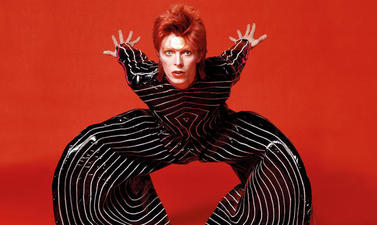 It has been a few weeks now since David Bowie's passing, and I have to say that I'm still caught up in my own form of mourning of him. I'm celebrating the fact that we got to share the planet with him by listening to his songs all over again, and at the same time, grieving the fact that there will never be anyone like him again. In many ways, David Bowie was my ultimate, favourite artist. The consummate mix of artistry and pop sensibility. I remember when I was younger, people used to ask me who my favourite singers or musicians were. I could always fall back on Madonna, because I think culturally, she has excelled at every level, but she wasn't ever really a musician. I admire her musical talent, but I would never put her in the same league as Bowie on that level. I think a lot of gay/bi men have issues identifying with male artists. It's a theme I touch on throughout my novel, and one that I have experienced myself. I can rattle off a million names of female artists who I've really, really loved, but really, when it comes to male musical acts there are few who have touched me as deeply as the female acts. Even by the nineties, Bowie was still my male touchstone when I fumbled for an answer. Even back then, there was still no equal to his greatness. His influence is writ large all over my novel, but thankfully I wrote it at a time when we still had the security of a living, breathing Bowie. The Vinyl Tiger is an androgynous, pop/performance artist who arrives years after Bowie has already started to craft his magic, but the Vinyl Tiger hits his mark in a new age and a new era. Throughout the book, Alekzandr, the main character, experiences loss, and reflects on the fact that he manages to outlive many artists who he deemed himself inferior to. And re-reading a passage about grief today that I wrote, I felt that it would just be timely to point it out, because grief comes in all kinds of forms. Sometimes its everything, you know. Other times you can deal with it. Clearly, the following paragraph is not in relation to Bowie, but rather, the very human feeling that supposedly makes us different to everyone else. Perhaps you'll agree with the sentiment. Grief is an all-encompassing thing. It ticks away under the surface and from its veiled position it attempts to derail anything and everything that stands before it. Grief is the only trace of the things that will forever be denied to us. The future moments, possibilities and promises that we are forced to accept will never eventuate. And the past glories from our own histories that we always thought we, at some point, would be able to relive, regardless of where circumstances may have led us in the meantime. Vinyl Tiger is available at a range of online stockists (paperback).
To order it via Amazon click here. Devastating news today. We've all just learned that David Bowie has tragically passed away after an eighteen month long battle with cancer. It's a heartbreaking piece of news that seems to have come out of nowhere. Perhaps because despite all his decades of envelope pushing and transgression, Bowie was an elegant gentleman who never really courted celebrity or coverage. For so long, he seemed to be so busy inhabiting the many alter egos and brilliant music he created, that he seemed less a man and more a creative force who projected so many larger than life entities into our world. So it has come as a surprise - a heartbreaking newsflash as rigid as that old lightning bolt that our evergreen Thin White Duke, our Ziggy Stardust is no longer with us. How very sad that we (and of course his family and friends) have lost one of the greatest artist/entertainers the world has ever seen. There are so many things to love and admire about Bowie. He was a pioneer; bold, creative and the one person who designed the blueprint for all the non conventional artists that followed. After all, Bowie spent more of his life setting and ignoring trends than he did chasing them and yet managed to maintain his influence longer than most. I'm an eighties boy in nearly every sense of the word, but the 80s and the music world as we know it today wouldn't have been the same without the presence of Bowie. What a ground breaker! A remarkable singer/songwriter, a performer who blurred every line that was possible even in an era when artists didn't have access to mass media, nor instant media as they do now. In my novel Vinyl Tiger, there are numerous references made to him or inspired by him because I truly believe that the most engaging, challenging pop artists from the eighties onwards, like the main character in Vinyl Tiger, owe a huge debt to him. The main character in my novel is someone who engages in reinvention and androgyny, but what separated Bowie from most of the artists that followed him was that those transformations were genuine and inspired. They were part and parcel of his artistic process and not about pre-calculated moments but more about bridging the gaps between traditional musicianship and conceptual/performance art. Space Oddity is where it began, back in 1969. And the journey he took along the way - always seemed to be about following his integrity and his artistry even if it didn't always connect with audiences or bled into other artistic mediums. He maintained that commitment right through to Black Star, his last (and recently released album) including for Lazarus - the video and song whose symbolism will be seen as Bowie's last testament to an artistic life of conviction. May he Rest in Peace. 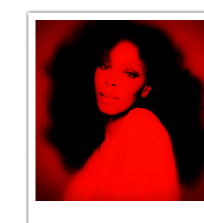 The world lost another icon this week with the passing of Donna Summer. It's interesting how in the late seventies she was quickly crowned the Queen of Disco, spent much of the eighties in a dated wilderness, and thereafter made a few odd stabs back at the mainstream every now and then, by which time her contributions to music were more secure, the threads picked up by successive generations. Unfortunately, one of the problems with dance music is that it often dates, and the classic Bad Girls album which launched hits like the title track, Macarthur Park and Hot Stuff was an example how time can often be cruel; for the two decades that followed its release in 1979 it was the stuff of cliches, of those disco bumper stickers and the kind of music that you would have probably expected to hear in some club that time seemed to have forgotten. But the reality is that as much as Donna Summer's music defined and was defined by the era that it ushered in, her effect was, and continues to be, felt. Pop today would be impossible to imagine without her Moroder collobarations like I Feel Love and Love To Love You which basically rewrote the rules on what dance and pop music were about, and continue to be sampled ad nauseum year after year from all spectrums of artists. Much is said of Donna Summer's gay audience, but in reality, Donna was an every woman; her music transcended boundaries and borders the way that ABBA's did, and the relationship with gays was not always a comfortable fit, particularly in the face of the confusion that the emergence of AIDS brought with it in the early eighties, at which time, some particularly vitriolic comments on her behalf seemed to fly in the face of an endless Gay Summer. It would be unfair to paint her as a cliched gay artist, especially as much of her current fan base were only born around the time of her ascent even if there is something genetically in her music that makes it so irresistable to so many GLBTs (though probably no more than non GLBTs). If anything, they have helped sustain her appeal and importance where the Rock and Roll Hall of Fame and their ilk have failed to do so (repeatedly, year after year). They might not have always supported her like she thy, but, they always appreciated and admired her, fuelled by their own younger memories of her amazing voice, those songs, and the way in which her music often seemed to suggest some happy marriage between dance, liberation and sex. RIP Donna Summer.. |
Dave
|
|
|
Dave Di Vito is a writer, teacher and former curator.He's also the author of the Vinyl Tiger series and Replace The Sky.
For information about upcoming writing projects subscribe to the mailing list. Dave hates SPAM so he won't trouble you with any of his own. He promises. |
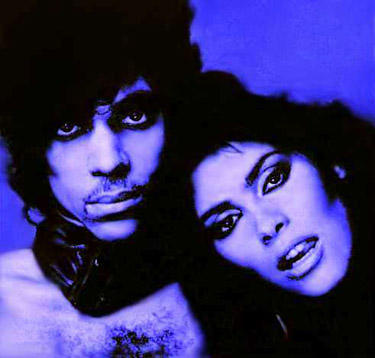
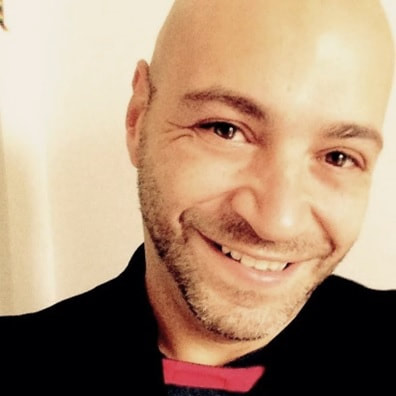
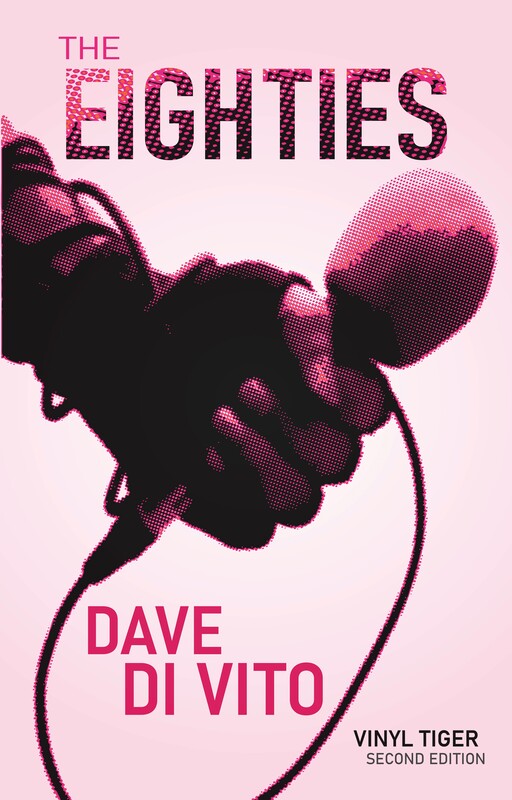
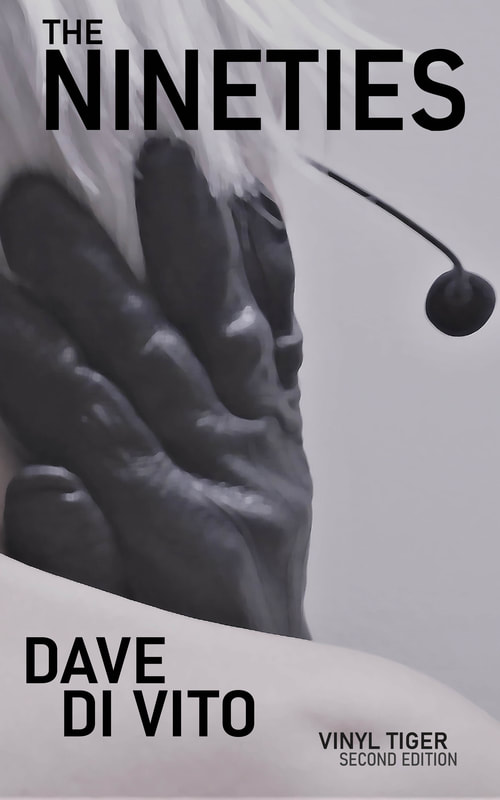
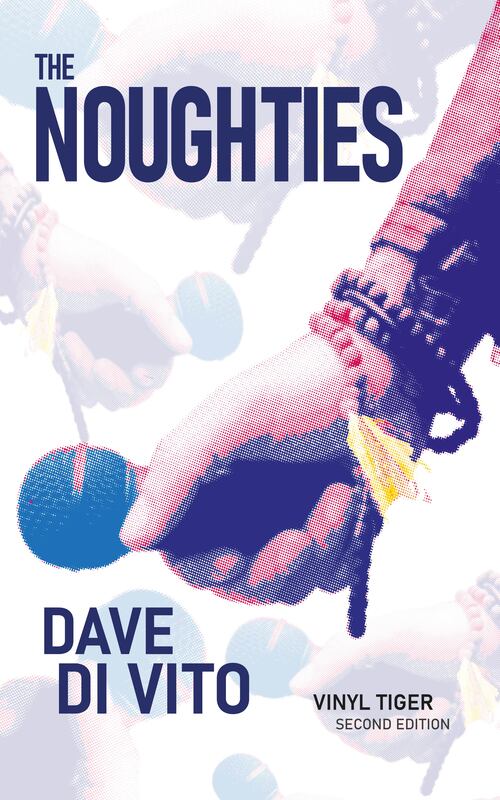
 RSS Feed
RSS Feed